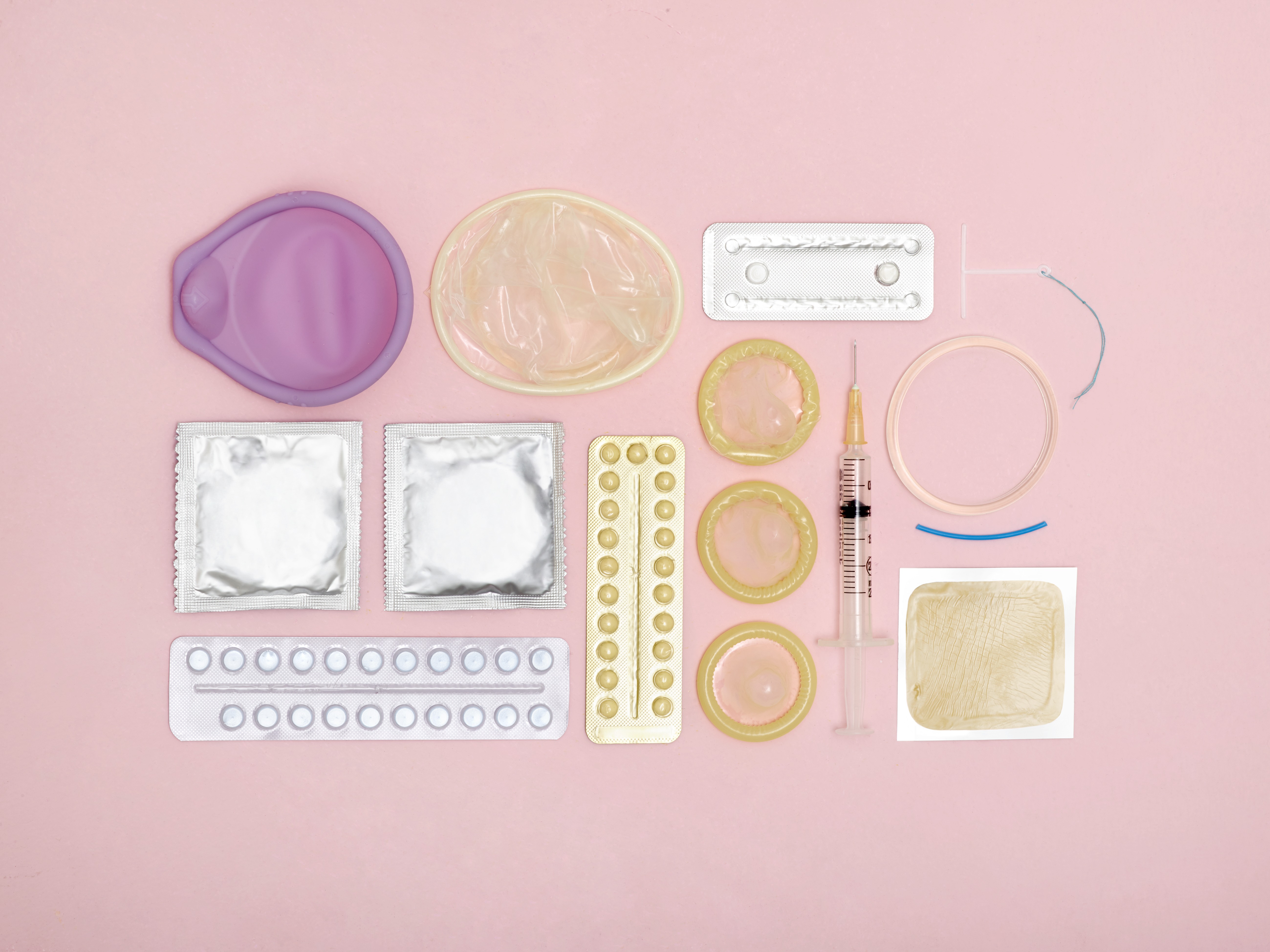Hormonal vs. Non-Hormonal Birth Control

Clinically reviewed by Cindy Richardson, CMPE, Practice Manager, BHMG OBGYN
Controlling if or when you become pregnant is vital to your health. It also affects the baby you conceive, your partner, and your family. Consequently, it’s essential to understand the different birth control options available.
Categories of Birth Control
There are two main categories of birth control: hormonal and non-hormonal.How hormonal birth control works
Hormonal birth control uses synthetic hormones like estrogen and progestin the body produces naturally. One or both hormones can be used to affect the body in three ways.First, they prevent ovulation (the release of eggs from the ovaries). Second, they thicken mucus on the cervix, making it difficult for sperm to reach the point where conception would occur if an egg were present. And third, these hormones change the uterus lining, making it hard for a fertilized egg to implant as it should.
The combination of these actions significantly reduces the risk of becoming pregnant. However, it’s important to note that hormonal birth control doesn’t prevent sexually transmitted infections (STIs), including HIV.
How non-hormonal birth control works
Non-hormonal birth control methods reduce the risk of pregnancy in ways that don’t affect a woman’s hormones. They include devices that prevent sperm from reaching eggs and chemicals that kill sperm.Some non-hormonal birth control methods, like condoms, also decrease the risk of STI transmission.
Benefits and Drawbacks of Different Birth Control Methods
Hormonal and non-hormonal birth control methods both have benefits and drawbacks. Depending on the type of hormonal birth control used, the benefits can include the following:- Reduced or eliminated periods, including less cramping and bleeding
- Reduced pain during ovulation
- No interruption of foreplay or intercourse
- Possible reduced risk of several conditions, including pelvic inflammatory disease (PID), fibrocystic breast changes, ovarian cysts, ectopic pregnancy, ovarian cancer, and endometrial cancer
- Reduced symptoms of premenstrual dysphoric disorder (PMDD)
- Available in forms like patches and vaginal rings that don’t require daily pills
- Potential reduction in acne
Drawbacks of hormonal birth control include:
- Doesn’t prevent disease transmission
- May not be as effective when taken with certain medications
- If used in pill form, pills must be taken daily
- Patches deliver more estrogen than pills and may increase the risk of blood clots in the lungs or legs
- Patches may irritate the skin and can be adversely affected by exposure to high heat or direct sunlight
For non-hormonal birth control, the pros include:
- Many options, including external condoms, diaphragms, etc.
- No hormonal side effects
- Some methods reduce the risk of STIs
- Can be used as needed
- Doesn’t affect the reproductive cycle
The cons of non-hormonal birth control include:
- Can interrupt foreplay and intercourse
- Some methods, like tubal ligation, can be expensive
- May allow conception if not used correctly and consistently
- Methods like abstaining on certain days of the menstrual cycle require behavioral changes
Types of Birth Control
The good news for those not wanting to become pregnant is that many birth control options are available.Hormonal birth control
Hormonal birth control can be up to 99% effective in preventing pregnancy when used correctly. Methods include:- Birth control pill. There are several different birth control pills, each with different types and proportions of hormones. You take pills daily.
- Patch. You apply patches to your skin weekly, and they gradually release hormones.
- Vaginal ring. You insert a ring into your vagina monthly, and it gradually releases hormones.
- Hormonal intrauterine device (IUD). Your healthcare provider inserts this device into your uterus, where it releases hormones. You can leave it in place for up to eight years.
- Injection. Your healthcare provider gives approximately four injections spaced throughout the year.
Non-hormonal birth control
Non-hormonal birth control effectiveness varies significantly, from around 99% for a copper IUD to 75% for a spermicide alone. Methods include:
- Male condom. A condom covers the penis and prevents sperm from entering your body.
- Diaphragm. You put this into your vagina to keep sperm from entering your uterus. A doctor must fit it for you, and you should use it with a spermicide.
- Spermicide. Most effective when used with another method, spermicides kill or paralyze sperm.
- Vaginal gel. This is a substance you put into your vagina before sex to change the pH level and keep sperm from moving into the reproductive canal. Like spermicides, vaginal gels should be used with other birth control methods.
- Copper IUD. This type of IUD is wrapped in copper, which creates an environment difficult for sperm survival. Your healthcare provider positions it in your uterus, and it can stay in place for up to 10 years. If fertilization occurs, the IUD also may keep the fertilized egg from attaching to the walls of the uterus.
- Female condom. This is a latex tube that you put into your vagina. It works like a male condom, preventing sperm from entering your uterus.
- Sponge. This foam device works like a diaphragm but also contains spermicide.
- Cervical cap. Your doctor fits this device. It goes over your cervix to prevent sperm from entering and should be used with a spermicide.
- Surgical sterilization. To prevent future pregnancies, men and women can undergo vasectomy or tubal ligation procedures, respectively.
- Natural family planning. This method involves tracking your menstrual cycle and avoiding sex when you’re fertile.
- Pull-out method. This method is when the man removes his penis from your vagina before he ejaculates.
- Abstinence. This means not having sexual intercourse.



